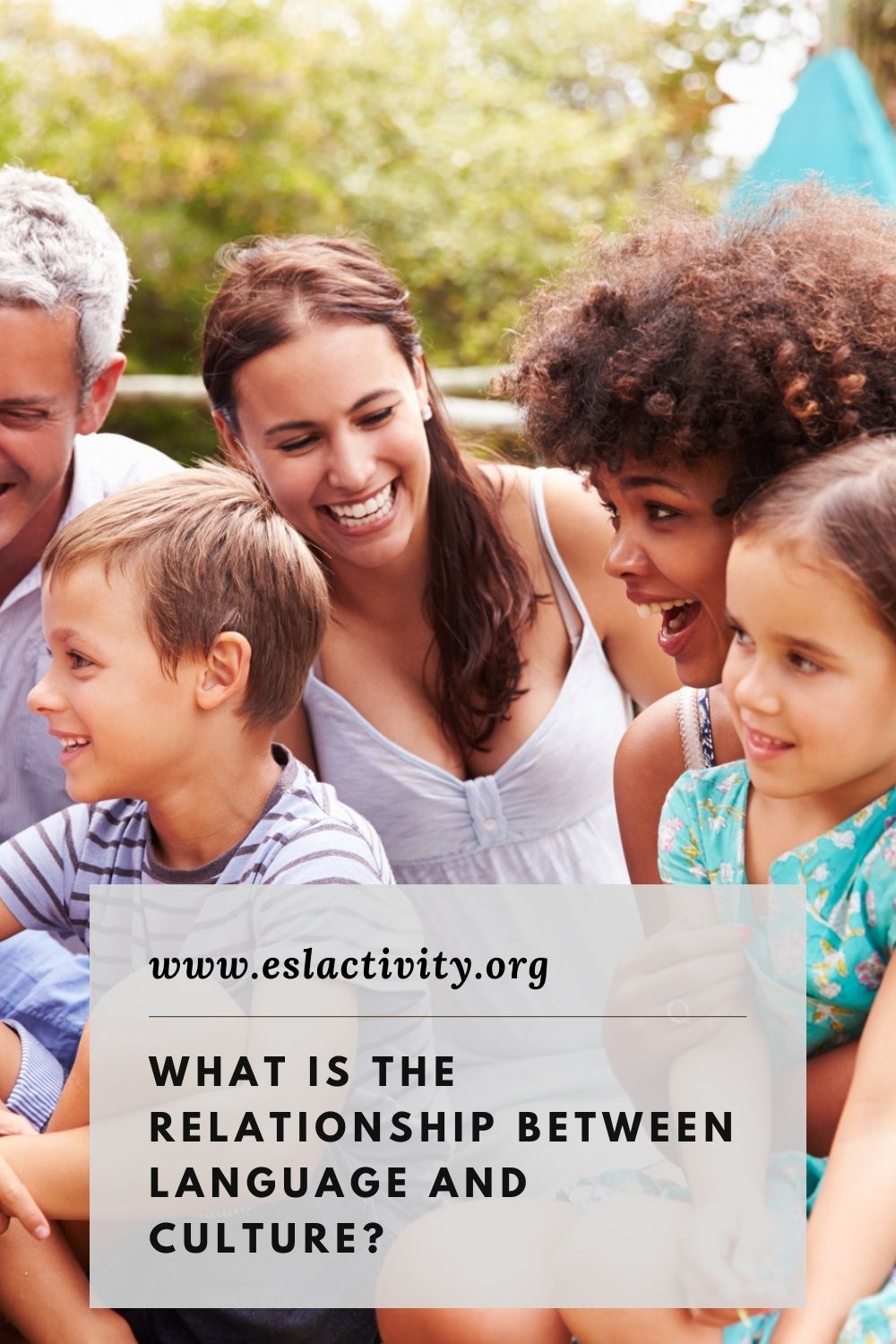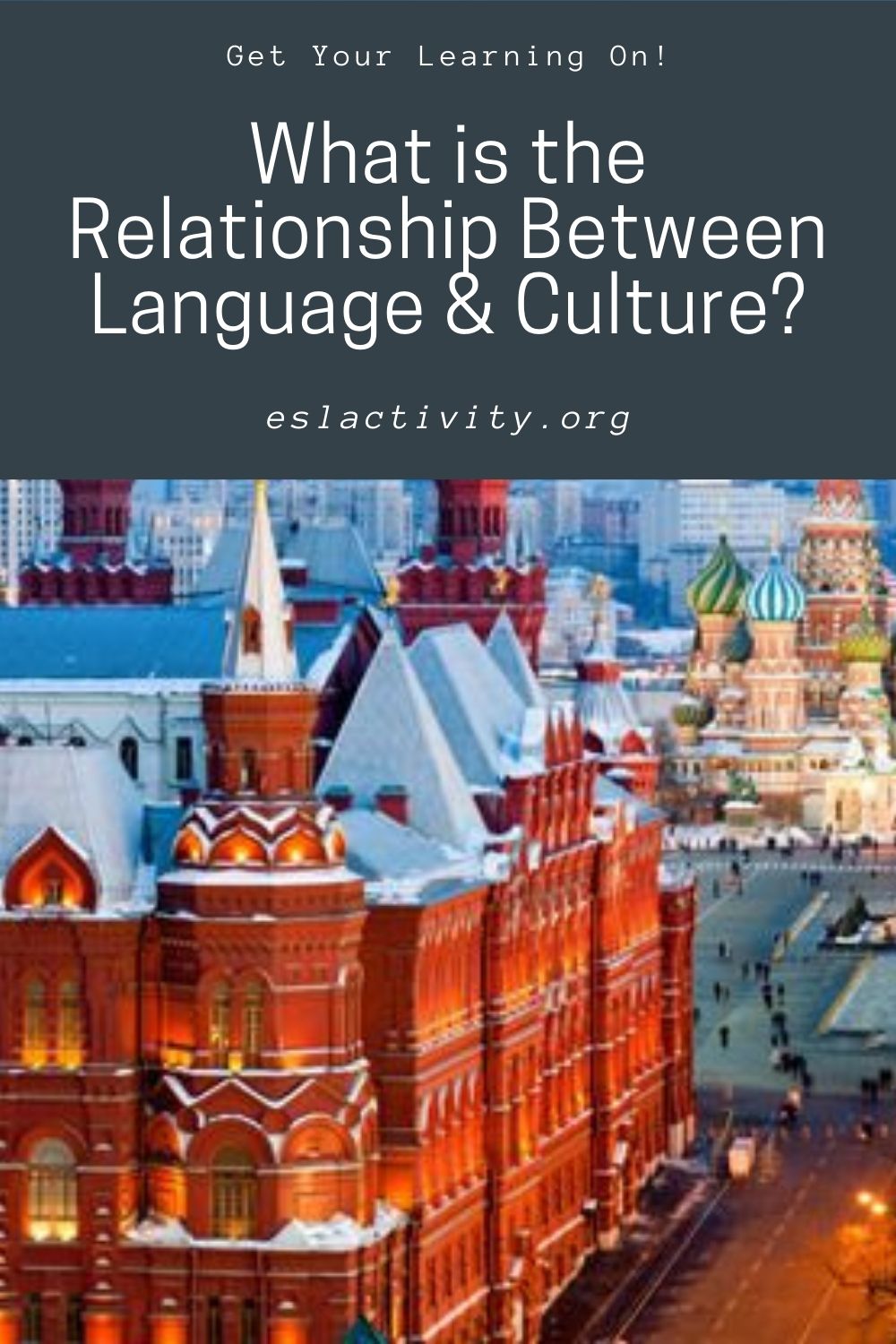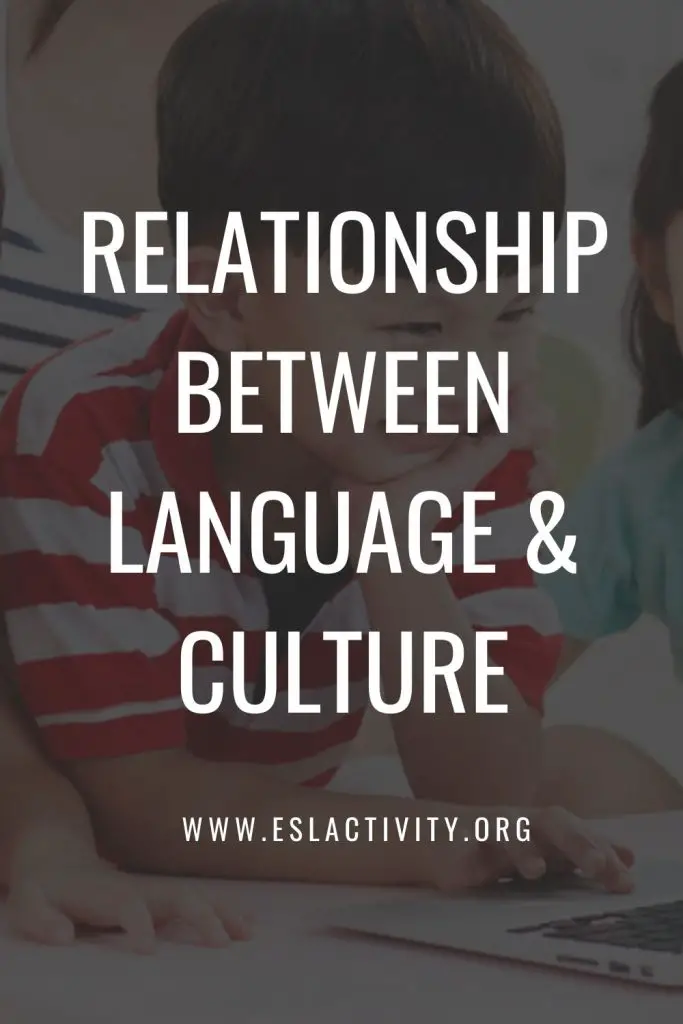When people talk about language, the topic of culture normally comes out. The same thing happens when the topic of culture is the center of a discussion, it typically touches on language. If you’re still confused about how these two concepts are related to each out, then continue reading so you’ll have an idea about the connection between these two rather different concepts.

Relationships between language and culture
Language and Culture: How are they Connected?
But before we go into their relationship, so to speak, we have to define language and culture. Then, we’ll get into all the details you need to know about culture and language and what influence they have upon each other.
What is Language?
Different sources have different definitions of language. Despite being different from each other, they also have some similarities. These sources all agree that language is a system of communication. It expresses ideas or feelings, and it is understood by a particular group of people living in a certain area, region, or country.
With this in mind, language can be defined as a system of communication that expresses an idea or feeling and is understood by a specific group of people. It can also be spoken, written, or gesticulated. It also distinguishes humans from animals.
What is Culture?
Culture, as defined in a dictionary, is the customary beliefs, material traits, and social forms of a religious, racial, or social group. It is also the characteristic features of the daily existence shared by a group of people in a specific place or time.
Culture is essentially the customs and traditions of a certain group of people during a certain era and place. It defines the identity of that group of people and sets them apart from others. Additionally, the culture of a people defines who they are.
How is Language Connected to Culture?
The concepts of language and culture seem different from each other. Language focuses on spoken and written expressions while culture focuses on the identity of a certain group of people. But these concepts are homologous to each other. Both of them share the realities, behaviors, and human values of a specific group of people.
As these two concepts evolve, they influence each other in a way that they become inseparable. Culture is the result of people interacting with each other while language is the cultural manifestation of a certain group of people. If you take out one concept, the other may not survive.
Simply put, language is not limited to conveying ideas and concepts. It is considered a symbolic system that creates and shapes realities. These realities include identities, perceptions, and values, which are, in fact, a part of a culture.
On the other hand, culture can also be considered a communicative event. For instance, art conveys the message of the artist to his or her audience. Dance also communicates a message to the audience, such as the ritual dances of native Americans. Art and dance are part of the culture of a group of people and they contain a message the people want to convey to other groups of people.
Confused? Well, let’s try to explain the concept further.
Linguistic Relativity
The relationship between the two can also be explained through a concept called linguistic relativity. A simple explanation of this concept is that language determines the way a person views the world. Or the person’s perception of the world corresponds to the person’s spoken language.
For instance, the description of snow when talking about the weather. For ordinary English speakers, snow is simply snow. But for Eskimos, snow can be defined in different ways when they use the Inuit language. When translated to English, snow can be frosty snow, wet snow, or even clinging snow. So, language has a direct effect on the culture of a person.
If you want to understand a certain culture better, you should learn to speak the language of a group of people. Once you speak the language, you’ll have a different outlook on the culture of a person. Communication is essential to know how a person interprets or views the world.
Transmission of Language and Culture
Since language is learned, it can be culturally transmitted. Children typically learn a language when they are young. The language they learn normally carries with it the culture the language is associated with. For instance, when they learn their mother tongue or the language of their parent, they will learn their parent’s culture. On the other hand, when they learn a second language, they will assimilate the culture of different people.
In this way, you will take note that when people learn English from natural-English speakers, they will end up learning the culture of their teacher. And if the students are young and impressionable, they may end up assimilating the culture of their teachers rather than their own native culture. Unless their parents ensure they are still educated in their native culture.

Relationship between culture and language
Assimilation of a Foreign Culture Through Language
This is an important point to consider for English teaching schools since young learners may end up losing their native culture if the school does not implement measures to counter the possible transmission of a foreign culture into the mindset of the children.
While this may be some cause for concern, taking the necessary steps can prevent this from happening. But it’s still possible that part of the foreign culture will still become a part of the psyche of the children.
In the end, teaching a foreign language can be beneficial for a young student since it will open their eyes to a culture different from their native culture. It will also allow them to be open to learn about these cultures and eventually take in the good aspects and incorporate them into their own culture.
FAQs about Cultural and Language
There are a number of common questions that people have about this topic. Here are the answers to some of the most popular ones.
How does culture influence language?
Culture influences language by shaping the topics of conversation, the way people communicate, the use of greetings, politeness norms, and the expressions and gestures considered appropriate or taboo.
Can language barriers hinder intercultural communication?
Yes, language barriers can hinder effective intercultural communication. When individuals do not share a common language, misunderstandings can occur, and it becomes more challenging to exchange ideas and express oneself accurately.
How does learning a new language contribute to cultural understanding?
Learning a new language provides insights into the cultural practices, beliefs, and perspectives of the speakers. It helps develop empathy, fosters cross-cultural communication and facilitates a deeper understanding and appreciation of different cultures.
Can cultural norms affect language learning and teaching?
Yes, cultural norms can influence language learning and teaching. Different cultures may have varying expectations regarding communication styles, politeness, and language use, which may impact language learners’ strategies and teachers’ instructional approaches.
How can language learners navigate cultural differences effectively?
Language learners can navigate cultural differences effectively by being open-minded, respectful, and willing to learn about and adapt to the cultural practices and communication styles of the target language community.
Why is it important to consider culture when translating or interpreting?
Considering culture during translation or interpretation is crucial because meanings, expressions, and nuances can vary across cultures. Translators and interpreters need to convey not only the words but also the cultural context and intended message accurately.
Should I Teach Culture Along With Language?
Yes, teaching culture along with a language can greatly enhance the language learning experience for students. Here are some reasons why it is beneficial to incorporate cultural elements into language instruction.
Enhances communication skills
Language and culture are closely intertwined. Understanding cultural norms, customs, and gestures can help students communicate more effectively and appropriately in real-life situations. Cultural knowledge allows learners to interpret language nuances, idioms, and non-verbal cues, leading to better comprehension and fluency.
Fosters cultural awareness and understanding
Learning about different cultures promotes open-mindedness, empathy, and appreciation for diversity. It helps students develop a broader worldview and a deeper understanding of the perspectives, values, and beliefs of people from different backgrounds. This cultural competence is essential in our increasingly interconnected world.
Encourages authentic language use
Culture is an integral part of language, and teaching culture allows students to engage in authentic language use. By learning about customs, traditions, and cultural practices, students can apply their language skills in real-world contexts and understand the cultural context in which the language is used.
Facilitates meaningful connections
Incorporating culture in language instruction provides opportunities for students to establish connections with native speakers of the language. It allows them to relate to and engage with cultural materials such as literature, films, music, and art, fostering a deeper appreciation for the language and its speakers.
Enhances motivation and engagement
Cultural content adds interest and relevance to language learning, making it more engaging for students. It allows them to explore and discover new aspects of the target language beyond grammar and vocabulary, creating a richer and more meaningful learning experience.
Preparing for global citizenship
In today’s globalized world, proficiency in a language alone is not enough. By integrating cultural learning, students develop the skills needed to navigate intercultural interactions, work collaboratively in diverse environments, and become responsible global citizens.
Language and Culture: Join the Conversation
What are your thoughts about the relationship between these two things? Leave a comment below and let us know what you think. We’d love to hear from you.
Also, be sure to give this article a share on Facebook, Pinterest, or Twitter. It’ll help other people, like yourself who are interested in the relationship between them.

How is culture related to language?




